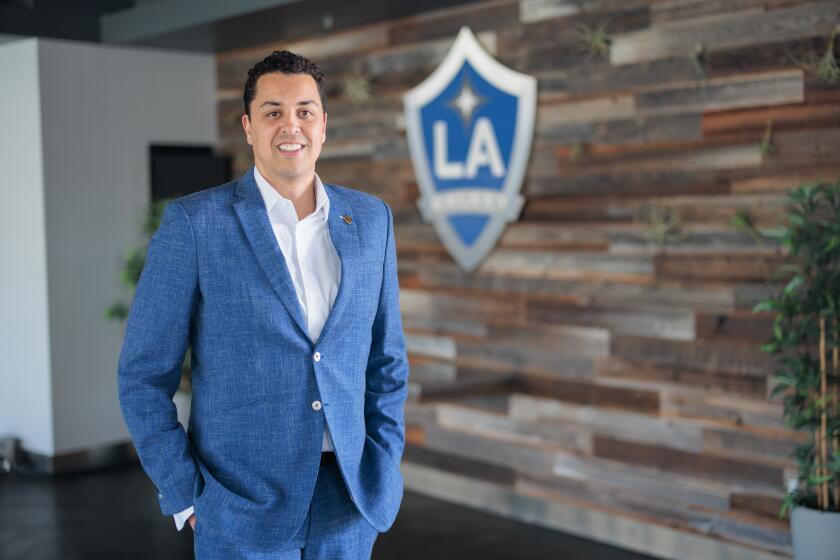Collusion Decision Biggest Since Messersmith
CHICAGO â A little more than a decade ago, hearings before an arbitrator on a case involving major league baseball drew little attention from the fans or the media.
However, when arbitrator Peter Seitz finally made his ruling it turned out to be a landmark decision in professional sports. That case involved pitcher Andy Messersmith and wound up creating free agency in baseball. The economics of the sport havenât been the same since.
In recent months, similar hearings have been held, usually with little fanfare or attention. But, like the Messersmith case in 1976, this one could have sweeping ramifications for pro sports.
In the first of two similar suits, the Major League Playersâ Assn. is charging collusion by the owners to hold down salaries for free agents in 1985.
The evidence began to be collected last June. Hearings concluded on May 20 when Baseball Commissioner Peter Ueberroth was the final witness.
âItâs terribly frustrating (that) itâs taken this long,â said Donald Fehr, head of the Players Assn. âIn the testimony, I havenât heard anything yet that has surprised me. . . . Something could come down as early as June 15 to July 1.â
A more realistic date would be after the All-Star game, sometime in late July or August.
Ueberroth denied he had resisted testifying, saying he was in full compliance with the arbitratorâs request he appear.
âBoth sides did a good job. Other than that, I canât get into what was said,â he said. âI felt good about what was asked and it was what I expected.â
The arbitrator, Tom Roberts, admits the volume of the evidence is staggering. More than 6,000 pages of transcript have to be sifted by Roberts before a decision is announced.
âIâve been involved with hundreds of cases,â Roberts says, âbut only a few have been as involved as this one.â
The ramifications of Robertsâ ruling could change the structure of the game or could have no impact whatsoever.
âObviously, we donât know what heâs going to rule but weâre optimistic weâre going to win,â Fehr said. âBut what we donât know is what he will rule--what will be the damages.â
The âremediesâ should the playersâ win remain fuzzy. Some have argued the 62 free agents in 1985, most notably the top free agents such as pitchers Donnie Moore and Joe Niekro, catcher Carlton Fisk and outfielder Kirk Gibson, could renegotiate. Others have said the owners would be liable for millions of dollars in damages that could be spread out to the more than 600 major league ballplayers.
What is more likely is that if collusion is proved, the players could be back to the halcyon days when wild bidding wars ensued and astronomical salaries were the rule.
âWe arenât concerned about the remedies. We want our case to be proven right,â Fehr says. âItâs up to the arbitrator to decide.â
Moore, Niekro, Fisk and Gibson did not receive offers from new teams, and the Players Assn. says of the 62 free agents who filed that year, only five moved to new clubs.
Fehr and the union claim the owners violated the collective bargaining agreement between the players and the leagues which, among other things, sets the rules for free agency. The specific clause at issue reads: âPlayers shall not act in concert with other players and clubs shall not act in concert with other clubs.â
Roberts insists he will do âwhat I am asked to do.â Should he decide in favor of the players, he could sit down with both sides and come up with a settlement. Roberts undoubtedly has not forgotten the owners tried to have him thrown off the case only to have another arbitrator rule that Roberts should stay on.
The owners remain optimistic they have not only proven their case but have done nothing wrong.
âWhat weâve been doing is just getting our house in order. We realized we created the problem earlier with the spending on free agents. We just plain and simple wanted to stop losing money,â says Chicago White Sox owner Jerry Reinsdorf.
But even if the players lose the first round, they have another case waiting in the wings. A similar suit was filed by the association against the owners charging collusion for free agents last year.
âShould we lose we can go back and see what the evidence said and what is needed to win the next case,â Fehr said. âThen we bring in Tim Raines.â
More to Read
Go beyond the scoreboard
Get the latest on L.A.'s teams in the daily Sports Report newsletter.
You may occasionally receive promotional content from the Los Angeles Times.










